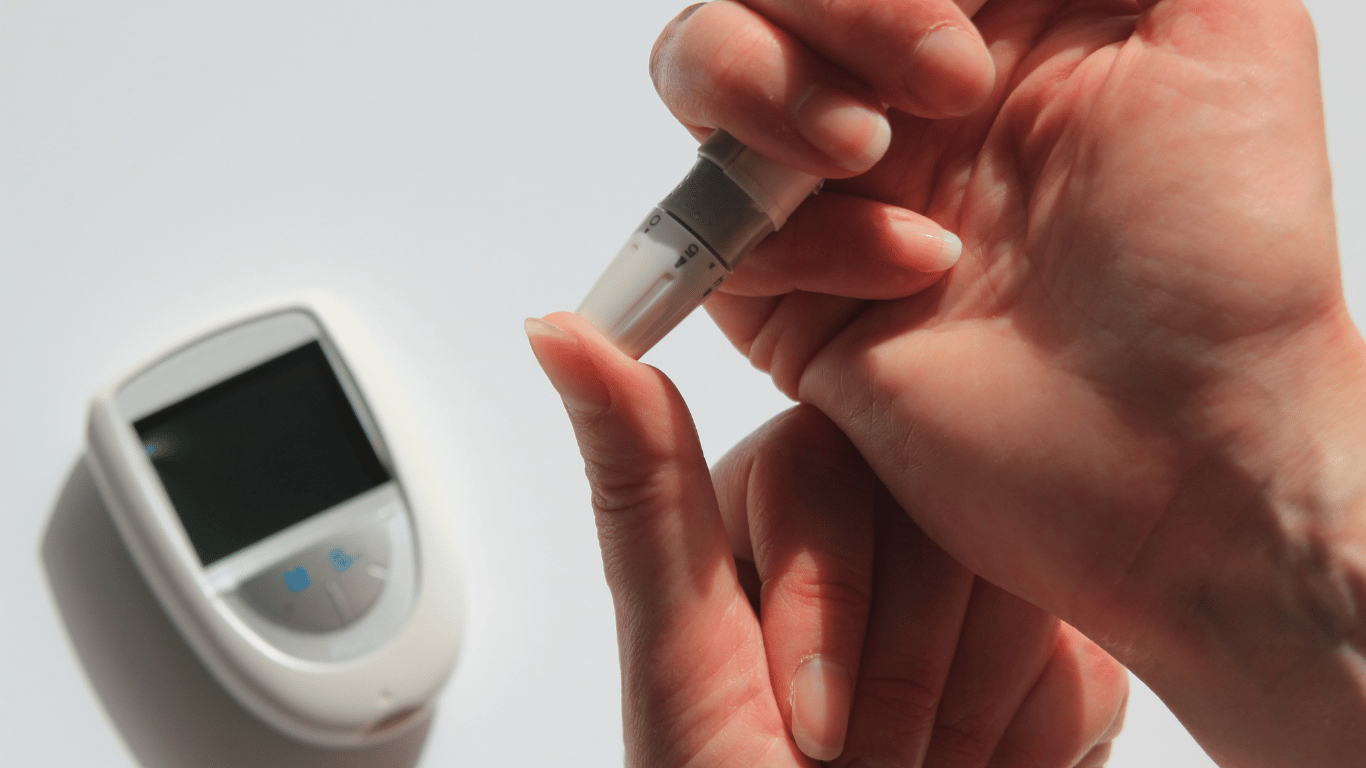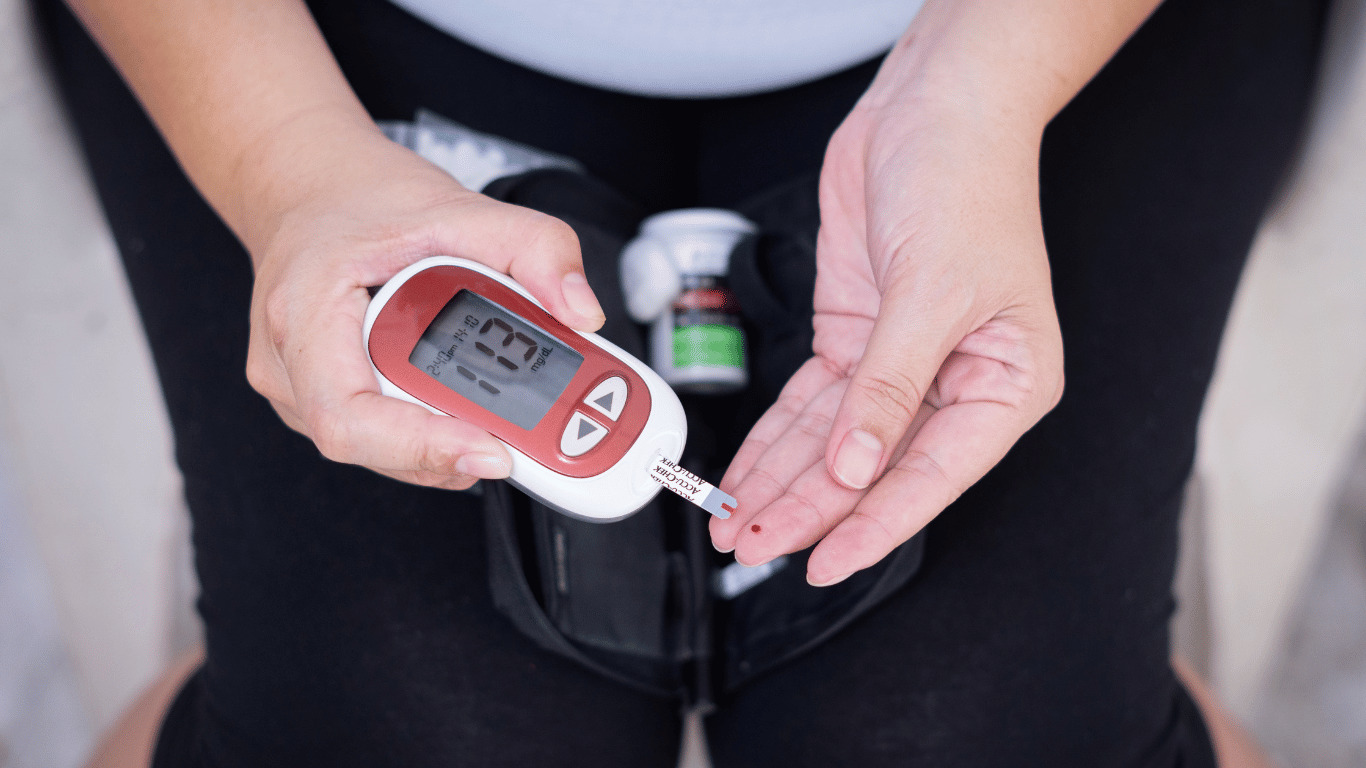Unraveling the Mystery: What Causes High Cholesterol? | Expert Insights
Take charge of your heart health by understanding high cholesterol’s causes & consequences. From diet to genetics, explore factors impacting cholesterol levels. Discover lifestyle changes & medications for effective cholesterol management.
Cholesterol is a waxy substance found in the cells of our body. It is essential for various bodily functions, including the production of hormones, Vitamin D, and bile acids that aid in digesting fat. However, having high cholesterol levels can pose serious health risks. In this comprehensive article, we will delve deeper into the factors and conditions that contribute to elevated cholesterol levels and the potential consequences for overall health.
Introduction
Understanding Cholesterol
Before delving into the causes of high cholesterol, it’s crucial to grasp the basics of cholesterol and its importance. As mentioned earlier, cholesterol exists in two main types: Low-Density Lipoprotein (LDL) or “bad” cholesterol and High-Density Lipoprotein (HDL) or “good” cholesterol.
LDL cholesterol is responsible for transporting cholesterol from the liver to the cells. When LDL cholesterol levels become excessive, it can lead to the accumulation of cholesterol in the arterial walls, forming plaque and increasing the risk of atherosclerosis, heart disease, and other cardiovascular issues.
HDL cholesterol, on the other hand, carries cholesterol away from the cells and back to the liver, where it is processed and eliminated. Higher levels of HDL cholesterol are associated with a lower risk of heart disease.
While cholesterol is essential for these functions, it’s crucial to strike a balance and prevent excess levels that can lead to health complications. High cholesterol levels are often influenced by a combination of factors, including diet, lifestyle, genetics, age, and certain medical conditions.
Importance of Cholesterol in the Body
Cholesterol plays a vital role in maintaining the integrity of cell membranes and is involved in synthesizing certain hormones like estrogen, testosterone, and cortisol. Additionally, cholesterol is crucial for the production of Vitamin D, which is necessary for maintaining healthy bones and overall immune function.
Although cholesterol is essential for these critical functions, it’s worth noting that the human body can produce all the cholesterol it needs. This means that the additional cholesterol we consume from our diets, particularly in the form of saturated and trans fats, can contribute to elevated cholesterol levels and potential health issues.
A balance of cholesterol intake and production is essential to support overall health and prevent the negative consequences associated with high cholesterol levels.

What Causes High Cholesterol?
High cholesterol levels can arise from various factors and conditions. Let’s explore each of these contributing factors in detail:
Dietary Factors
Our dietary choices significantly impact our cholesterol levels. Foods high in saturated and trans fats are major contributors to increased LDL cholesterol levels. Saturated fats are commonly found in animal products like fatty meats, butter, and full-fat dairy, while trans fats are often found in processed and fried foods, such as cookies, cakes, and fast food.
While dietary cholesterol does not have as significant an impact on blood cholesterol levels as saturated and trans fats, it can still contribute to higher LDL cholesterol in some individuals. Cholesterol-rich foods include organ meats, egg yolks, and shellfish.
Tip: To reduce cholesterol intake, opt for leaner cuts of meat, low-fat dairy products, and avoid heavily processed and fried foods. Incorporate heart-healthy fats, such as those found in avocados, nuts, and olive oil, into your diet to promote HDL cholesterol levels.
Lifestyle Choices
Several lifestyle choices can impact cholesterol levels:
Sedentary Lifestyle
Lack of physical activity can contribute to higher LDL cholesterol and lower HDL cholesterol levels. Regular exercise not only helps raise HDL cholesterol but also improves overall cardiovascular health, blood circulation, and weight management.
Research has shown that engaging in aerobic exercises, such as walking, jogging, swimming, or cycling, can positively affect cholesterol levels. These activities stimulate enzymes that move LDL cholesterol from the blood vessels to the liver, where it is processed and eliminated.
Tip: Aim for at least 150 minutes of moderate-intensity exercise or 75 minutes of vigorous-intensity exercise per week to support heart health and cholesterol management.
Smoking and Tobacco Use
Smoking damages blood vessels, making it easier for cholesterol to accumulate in arterial walls. It also lowers HDL cholesterol levels, further increasing the risk of heart disease.
Studies have indicated that smoking cessation can lead to an increase in HDL cholesterol levels within weeks or months, significantly improving cardiovascular health. Quitting smoking is one of the most impactful changes individuals can make to reduce their risk of heart disease and improve overall well-being.
Tip: Seek support from family, friends, or support groups to quit smoking successfully. Consider discussing smoking cessation strategies with your healthcare provider for additional guidance.
Genetics and Family History
Family history and genetics can play a significant role in determining cholesterol levels:
Familial Hypercholesterolemia
Familial hypercholesterolemia is a genetic condition that leads to extremely high LDL cholesterol levels from birth. Individuals with this condition are at high risk of premature heart disease.
Research has shown that familial hypercholesterolemia affects approximately 1 in 250 individuals worldwide. If one parent carries the gene for familial hypercholesterolemia, there is a 50% chance of passing the gene to their children.
Tip: If you have a family history of high cholesterol or heart disease, consult with a healthcare professional for appropriate screening and management. Early detection and intervention can significantly improve outcomes.
Genetic Predisposition
Even without a specific genetic disorder like familial hypercholesterolemia, some people may inherit genes that affect cholesterol metabolism, leading to higher cholesterol levels.
For example, some individuals may have a genetic variation that causes their liver to produce more cholesterol than necessary or reduces their liver’s ability to remove LDL cholesterol from the bloodstream efficiently.
Tip: Knowing your family history can help you make informed lifestyle choices and take appropriate preventive measures. If you have concerns about your genetic predisposition, discuss them with your doctor during your regular check-ups.
Age and Gender
Cholesterol levels can be influenced by age and gender:
Age-Related Changes
As people age, cholesterol levels tend to rise, particularly LDL cholesterol. This age-related increase in cholesterol contributes to the higher incidence of heart disease in older adults.
Research has shown that cholesterol levels typically start to rise in men during their 40s and continue to increase until about age 60. In women, cholesterol levels begin to rise in their 50s and continue to increase until menopause.
Tip: Regular health check-ups are essential, especially as you age, to monitor cholesterol levels and assess cardiovascular risk. Engaging in heart-healthy lifestyle habits throughout life can help mitigate age-related changes in cholesterol levels and reduce the risk of heart disease in later years.
Gender Differences
Before menopause, women generally have lower LDL cholesterol levels than men. However, after menopause, their LDL levels may rise, equalizing the risk of heart disease between genders.
Estrogen, a hormone that tends to raise HDL cholesterol and lower LDL cholesterol, offers some protection for premenopausal women. However, as estrogen levels decline during menopause, women may experience an increase in LDL cholesterol and a decrease in HDL cholesterol, potentially increasing their risk of heart disease.
Tip: Regardless of gender, adopting heart-healthy habits is beneficial for everyone. Women, especially after menopause, should pay particular attention to their cholesterol levels and make lifestyle adjustments to support heart health.

Health Conditions and Cholesterol
Certain health conditions can influence cholesterol levels:
Obesity and Overweight
Obesity and being overweight are associated with higher LDL cholesterol and triglyceride levels, as well as lower HDL cholesterol levels. Excess body weight, particularly abdominal obesity, is a risk factor for metabolic syndrome, a cluster of conditions that increase the risk of heart disease.
Excess fat tissue, especially around the midsection, is thought to contribute to inflammation, insulin resistance, and unfavorable lipid profiles, all of which can impact cholesterol levels and cardiovascular health.
Tip: Maintaining a healthy weight through a balanced diet and regular exercise can improve cholesterol levels and overall health. Losing just 5-10% of body weight can lead to significant improvements in cholesterol levels and reduce the risk of heart disease.
Diabetes and Insulin Resistance
Diabetes and insulin resistance can lead to elevated LDL cholesterol and triglyceride levels and decreased HDL cholesterol levels. High blood glucose levels can damage blood vessels and contribute to atherosclerosis, the buildup of plaque in the arteries.
Insulin resistance, a condition where the body’s cells do not respond properly to insulin, can lead to increased production of cholesterol and triglycerides in the liver, exacerbating dyslipidemia.
Tip: Proper management of diabetes, including medication, diet, and exercise, is essential to control cholesterol levels. Regular blood sugar monitoring and adherence to diabetes management plans can help prevent complications related to dyslipidemia and heart disease.

Hypothyroidism
Underactive thyroid (hypothyroidism) can cause cholesterol levels to rise, contributing to atherosclerosis and heart disease. Thyroid hormones play a crucial role in regulating cholesterol metabolism in the body.
When the thyroid gland does not produce enough thyroid hormones, the body’s ability to break down LDL cholesterol and clear it from the bloodstream is impaired. This results in higher levels of LDL cholesterol, increasing the risk of cardiovascular issues.
Tip: If you suspect you have hypothyroidism or have been diagnosed, work closely with your healthcare provider to manage your condition and monitor cholesterol levels. Proper treatment with thyroid hormone replacement therapy can help restore thyroid hormone balance and improve cholesterol profiles.
Kidney and Liver Diseases
Both kidney and liver diseases can impact cholesterol metabolism, leading to higher cholesterol levels in the bloodstream.
In kidney disease, the kidneys may not be able to filter waste products and cholesterol effectively, resulting in elevated cholesterol levels. Similarly, liver diseases, such as non-alcoholic fatty liver disease (NAFLD), can impair the liver’s ability to remove LDL cholesterol from the blood, leading to dyslipidemia.
Tip: If you have kidney or liver issues, it’s crucial to follow your doctor’s recommendations to manage these conditions and minimize their impact on cholesterol levels. Medication adjustments, lifestyle changes, and close monitoring can be part of an effective treatment plan.
Metabolic Syndrome
Metabolic syndrome is a cluster of risk factors that, when occurring together, significantly increase the risk of heart disease and stroke. These risk factors include abdominal obesity, high blood pressure, insulin resistance, and dyslipidemia (abnormal cholesterol levels).
People with metabolic syndrome often have elevated LDL cholesterol, triglycerides, and blood sugar levels, along with low HDL cholesterol levels. These combined risk factors contribute to the development of atherosclerosis and cardiovascular issues.
Tip: Addressing each component of metabolic syndrome through lifestyle changes and, if necessary, medical treatment can improve cholesterol levels and reduce the risk of heart disease. A comprehensive approach that includes weight management, physical activity, and blood pressure control can be highly effective.

Medications and High Cholesterol
In some cases, certain medications can influence cholesterol levels:
Steroids and Corticosteroids
Certain medications like prednisone and corticosteroids can raise LDL cholesterol levels when used long-term. Corticosteroids are often prescribed to treat various inflammatory conditions, autoimmune diseases, and allergies.
These medications can increase the production of cholesterol in the liver and decrease the clearance of LDL cholesterol from the blood, leading to elevated LDL levels.
Tip: If you require these medications for a prolonged period, discuss with your doctor how to manage their impact on cholesterol levels. Your healthcare provider may recommend lifestyle modifications or prescribe cholesterol-lowering medications to mitigate these effects.
Beta-Blockers
Beta-blockers, commonly used to treat high blood pressure and certain heart conditions, may lead to a modest increase in triglycerides and decrease HDL cholesterol levels.
While the effects of beta-blockers on cholesterol levels are generally mild compared to other medications, healthcare providers carefully monitor patients who are on beta-blockers and may adjust treatment plans as needed.
Tip: If you’re on beta-blockers, work with your doctor to find the best combination of medications and lifestyle changes to manage cholesterol levels effectively. In some cases, your doctor may prescribe additional cholesterol-lowering medications to counteract any negative effects on cholesterol levels.
Diuretics
Diuretics, often prescribed for hypertension, can occasionally raise cholesterol levels.
Thiazide diuretics, a specific type of diuretic, may lead to modest increases in LDL cholesterol and triglycerides while reducing HDL cholesterol levels.
Tip: Your healthcare provider may adjust your diuretic medication or recommend additional interventions to maintain healthy cholesterol levels. If diuretics are necessary for managing blood pressure, their cardiovascular benefits typically outweigh their mild effects on cholesterol.
Retinoids
Retinoids, used in certain skin medications to treat acne and other skin conditions, may cause a mild increase in cholesterol and triglyceride levels.
Retinoids, derived from Vitamin A, have been associated with alterations in lipid metabolism, particularly at higher doses.
Tip: If you’re using retinoid medications, it’s essential to be aware of their potential effects on cholesterol and triglyceride levels. If you have concerns, discuss them with your dermatologist or healthcare provider, who can monitor your lipid levels and adjust your treatment plan if necessary.

Impact of High Cholesterol on Health
Understanding the consequences of high cholesterol is crucial in motivating individuals to make necessary lifestyle changes and seek appropriate medical management. Elevated cholesterol levels can have a significant impact on overall health, with potential consequences that include:
Atherosclerosis and Heart Disease
One of the most concerning effects of high cholesterol is the development of atherosclerosis, a condition where cholesterol-rich plaque accumulates in the arteries. Over time, this plaque buildup can narrow and harden the arteries, restricting blood flow to the heart.
When blood flow to the heart is limited, it can lead to angina (chest pain) or even cause a heart attack if a blood clot forms and completely blocks a narrowed artery. The severity of the heart disease depends on the location and extent of the plaque formation.
Research has consistently shown that higher levels of LDL cholesterol are associated with an increased risk of atherosclerosis and coronary heart disease. Additionally, low levels of HDL cholesterol can further contribute to heart disease risk, as HDL plays a crucial role in removing excess cholesterol from the bloodstream.
Tip: Adopting a heart-healthy lifestyle and following prescribed treatments can slow the progression of atherosclerosis and reduce the risk of heart disease. Regular exercise, a balanced diet, and cholesterol-lowering medications (if necessary) can all contribute to improving cardiovascular health.
Stroke
Cholesterol also plays a significant role in the development of strokes. A stroke occurs when the blood supply to the brain is disrupted, either due to a blockage (ischemic stroke) or a ruptured blood vessel (hemorrhagic stroke).
If atherosclerosis is present in the arteries leading to the brain, a piece of plaque can break off and travel to the brain, causing a blockage and resulting in an ischemic stroke. Similarly, if an artery in the brain ruptures due to weakened vessel walls, it can lead to a hemorrhagic stroke.
Elevated LDL cholesterol levels, especially when combined with other risk factors such as high blood pressure and smoking, can significantly increase the risk of stroke.
Tip: Lowering LDL cholesterol and controlling other risk factors can significantly reduce the risk of stroke. Engaging in regular physical activity, managing blood pressure, and quitting smoking are all crucial steps in stroke prevention.

Peripheral Artery Disease (PAD)
High cholesterol can also lead to peripheral artery disease, a condition where plaque buildup narrows the arteries that supply blood to the limbs, most commonly the legs. As a result, individuals with PAD may experience pain, cramping, and fatigue in their legs during physical activity.
Left untreated, PAD can progress and lead to complications such as non-healing wounds, ulcers, and even gangrene in severe cases. The impaired blood flow in the legs can also increase the risk of developing infections and slow the healing process of injuries.
Tip: Lifestyle modifications and appropriate medical interventions can help manage PAD and improve blood flow to the legs. This may include cholesterol-lowering medications, exercise therapy, and regular check-ups with a vascular specialist.
Cholesterol Gallstones
High levels of cholesterol in the bile can lead to the formation of gallstones. Bile is a digestive fluid produced by the liver and stored in the gallbladder. Cholesterol gallstones are the most common type of gallstones.
When there is an imbalance of cholesterol, bile salts, and other substances in the gallbladder, cholesterol crystals can form and eventually grow into gallstones. These stones can cause pain and inflammation, leading to gallbladder-related issues, such as cholecystitis (inflammation of the gallbladder) and cholangitis (inflammation of the bile ducts).
Tip: Maintaining a healthy diet and managing cholesterol levels can reduce the risk of developing gallstones. Avoiding crash diets or rapid weight loss programs can also be beneficial, as they can increase the risk of gallstone formation.

Prevention and Management of High Cholesterol
Fortunately, high cholesterol is often manageable through lifestyle changes and medical interventions. Here are some effective strategies for preventing and managing high cholesterol:
Dietary Modifications
Adopting a heart-healthy diet can significantly impact cholesterol levels and overall cardiovascular health. The Mediterranean diet and the Dietary Approaches to Stop Hypertension (DASH) diet are two well-researched dietary patterns that have been shown to improve cholesterol profiles and reduce the risk of heart disease.
The Mediterranean diet emphasizes fruits, vegetables, whole grains, legumes, nuts, seeds, and healthy fats, such as olive oil. It includes moderate consumption of fish and poultry, with limited red meat. Reducing the intake of saturated and trans fats is a crucial aspect of this diet.
The DASH diet focuses on reducing sodium intake to improve blood pressure, but it also encourages whole, nutrient-rich foods and discourages foods high in saturated and trans fats.
Tip: Consider consulting a registered dietitian for personalized dietary recommendations based on your specific health needs and goals.
Regular Physical Activity
Engaging in regular physical activity is essential for maintaining healthy cholesterol levels and overall cardiovascular fitness. Exercise helps raise HDL cholesterol levels, which is beneficial for heart health.
Aerobic exercises, such as walking, jogging, swimming, or cycling, have been shown to positively affect cholesterol levels. These activities stimulate enzymes that move LDL cholesterol from the blood vessels to the liver, where it is processed and eliminated.
Tip: Find activities you enjoy to increase adherence to exercise routines. Aim for at least 150 minutes of moderate-intensity exercise or 75 minutes of vigorous-intensity exercise per week to support heart health and cholesterol management.
Smoking Cessation
Quitting smoking and avoiding tobacco products are essential steps in reducing the risk of heart disease and improving cholesterol levels. Smoking damages blood vessels and lowers HDL cholesterol levels, both of which contribute to atherosclerosis and cardiovascular issues.
Tip: Seek support from family, friends, or support groups to quit smoking successfully. Consider discussing smoking cessation strategies with your healthcare provider for additional guidance and resources.

Medication and Treatment Options
If lifestyle changes alone are insufficient to manage cholesterol levels, your doctor may prescribe cholesterol-lowering medications, such as statins, to help control cholesterol levels.
Statins are a class of medications that effectively reduce LDL cholesterol levels by inhibiting an enzyme involved in cholesterol production in the liver. They have been extensively studied and shown to be safe and effective in reducing the risk of cardiovascular events, such as heart attacks and strokes.
Other cholesterol-lowering medications may be prescribed if statins are not suitable or if additional cholesterol reduction is needed. These medications include bile acid sequestrants, cholesterol absorption inhibitors, PCSK9 inhibitors, and fibrates. Each medication works through different mechanisms to help manage cholesterol levels.
It’s essential to take cholesterol-lowering medications as prescribed by your healthcare provider. Adhering to the recommended dosage and schedule is crucial for achieving optimal results while minimizing the risk of side effects.
Tip: If prescribed cholesterol-lowering medications, take them regularly and attend follow-up appointments with your healthcare provider to monitor their effectiveness and address any concerns or side effects.
Monitoring Cholesterol Levels
Regular monitoring of cholesterol levels is essential for assessing your progress in managing cholesterol and evaluating the effectiveness of lifestyle changes and medications.
For individuals with existing high cholesterol or a history of heart disease, frequent monitoring may be necessary to ensure cholesterol levels are within target ranges. Your healthcare provider will recommend the appropriate frequency of cholesterol testing based on your individual risk factors and treatment plan.
Tip: Discuss the appropriate frequency of cholesterol testing with your doctor during your regular check-ups. This will help you stay on top of your cholesterol levels and track your progress towards improved heart health.

Conclusion
In conclusion, understanding the causes of high cholesterol is crucial for preventing and managing this common health issue. Lifestyle factors, such as diet, physical activity, and smoking habits, play a significant role in cholesterol levels. Additionally, genetics and certain medical conditions can contribute to elevated cholesterol levels.
Fortunately, high cholesterol is often manageable through lifestyle changes, such as adopting a heart-healthy diet, engaging in regular physical activity, and quitting smoking. For some individuals, cholesterol-lowering medications may be necessary to achieve target cholesterol levels and reduce the risk of cardiovascular disease.
It’s essential to take cholesterol management seriously and work closely with your healthcare provider to create a personalized plan that meets your specific needs and health goals. By prioritizing heart health and making informed choices, you can significantly reduce the risk of heart disease and enjoy a longer, healthier life.
Remember to attend regular check-ups, adhere to prescribed treatments, and stay proactive in managing your cholesterol levels. Empower yourself with knowledge about cholesterol, its impact on health, and the steps you can take to keep it in check. With the right approach and support, you can take control of your cholesterol levels and lead a heart-healthy life.
Appendices
References
- Mozaffarian D, Wilson PW, Kannel WB. Beyond established and novel risk factors: lifestyle risk factors for cardiovascular disease. Circulation. 2008;117(23):3031-3038. doi:10.1161/CIRCULATIONAHA.107.738732
- Grundy SM, Stone NJ, Bailey AL, et al. 2018 AHA/ACC/AACVPR/AAPA/ABC/ACPM/ADA/AGS/APhA/ASPC/NLA/PCNA Guideline on the Management of Blood Cholesterol. Circulation. 2018;139(25):e1082-e1143. doi:10.1161/CIR.0000000000000625
- Goldstein JL, Brown MS. A century of cholesterol and coronaries: from plaques to genes to statins. Cell. 2015;161(1):161-172. doi:10.1016/j.cell.2015.01.036
- American Heart Association. About Cholesterol. https://www.heart.org/en/health-topics/cholesterol/about-cholesterol. Accessed July 25, 2023.
FAQs
Q: What is cholesterol, and why is it essential?
A: Cholesterol is a waxy substance found in our cells, crucial for hormone production, Vitamin D synthesis, and bile acid digestion.
Q: How does a sedentary lifestyle affect cholesterol levels?
A: Lack of physical activity can lead to higher LDL cholesterol levels and lower HDL cholesterol levels, increasing heart disease risk.
Q: Are cholesterol-lowering medications safe and effective?
A: Yes, cholesterol-lowering medications like statins are well-studied, safe, and effective in reducing cardiovascular risk when prescribed appropriately.
Q: Can genetics play a role in high cholesterol?
A: Yes, genetic factors, such as familial hypercholesterolemia, can lead to extremely high LDL cholesterol levels.
Disclaimer
The information provided in this article is for educational purposes only and should not be considered as medical advice. Always consult with a qualified healthcare professional for personalized advice and guidance regarding your health, cholesterol management, and any medical conditions you may have. The authors and publishers of this article are not responsible for any direct or indirect consequences resulting from the use of the information presented herein.

Camellia Wulansari is a dedicated Medical Assistant at a local clinic and a passionate health writer at Healthusias.com. With years of hands-on experience in patient care and a deep interest in preventive medicine, she bridges the gap between clinical knowledge and accessible health information. Camellia specializes in writing about digestive health, chronic conditions like GERD and hypertension, respiratory issues, and autoimmune diseases, aiming to empower readers with practical, easy-to-understand insights. When she’s not assisting patients or writing, you’ll find her enjoying quiet mornings with coffee and a medical journal in hand—or jamming to her favorite metal band, Lamb of God.








